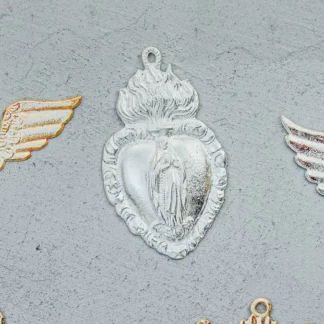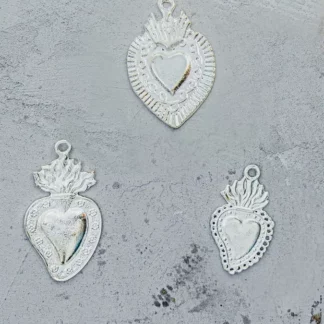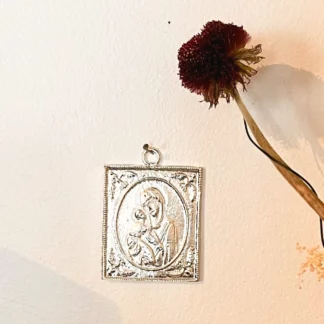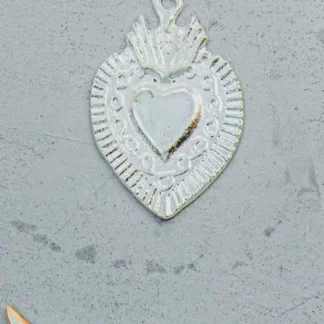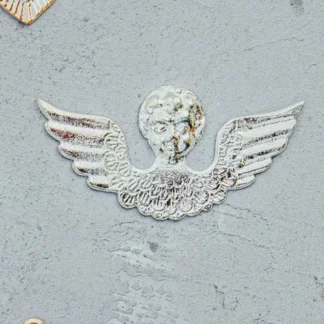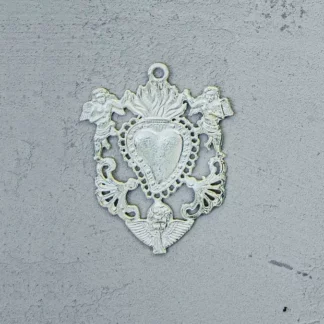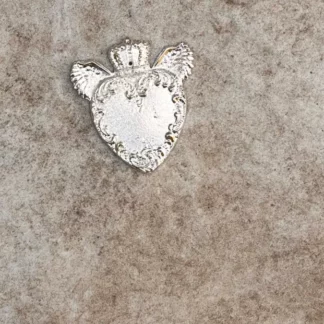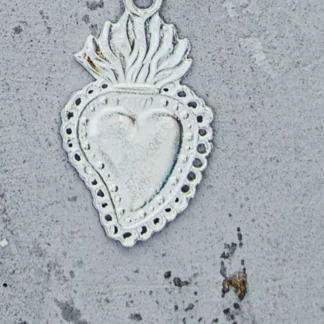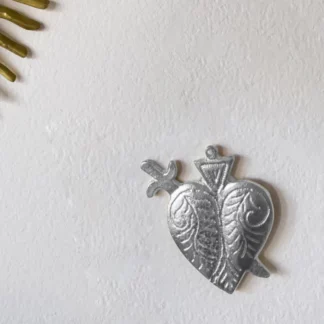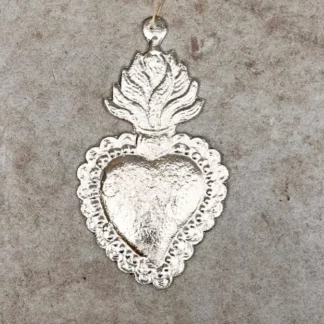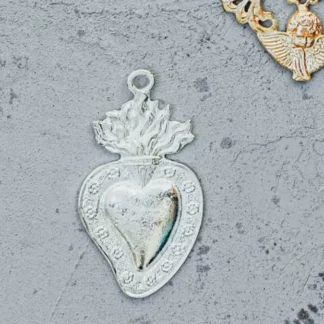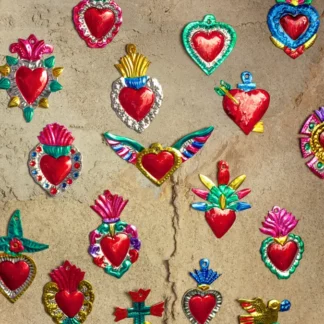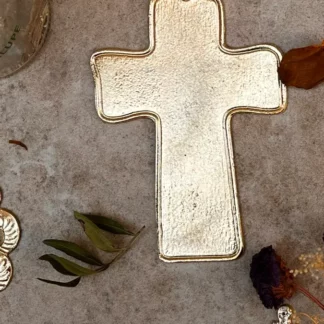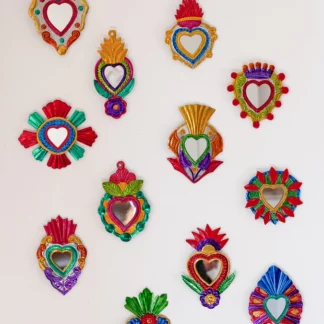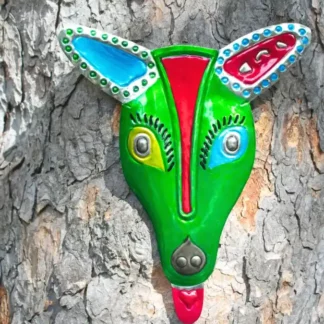Ex-votos
In Mexico, there is a strong tradition of ex-votos and sacred hearts—objects meant to accompany a vow or simply serve as decoration. Handmade from embossed metal, these sacred items are then painted by the artisans who craft them, guided by their imagination. For over 22 years, Tienda Esquipulas has been curating a wide selection of these authentic sacred objects, handcrafted by Mexican artisans.
Showing all 11 results
-

Heart of Mary gold
20,00 € inc. VAT Add to cart -

Mexican Miracle Trio
38,00 € inc. VAT Add to cart -

Virgin with Child milagro
12,00 € inc. VAT Add to cart -

Milagro fluted silver
14,00 € inc. VAT Add to cart -

Milagro silver cherub
14,00 € inc. VAT Add to cart -

Milagro heart and angels
17,00 € inc. VAT Add to cart -

Milagro coronado silver
14,00 € inc. VAT Add to cart -

Silver Serrated Milagro
12,00 € inc. VAT Add to cart -

Milagro ex-voto dagger
10,00 € inc. VAT Add to cart -

Milagro gran flame silver
20,00 € inc. VAT Add to cart -

Milagro silver margarita
14,00 € inc. VAT Add to cart
Showing all 11 results
What is an ex-voto?
An object of faith and gratitude
Originally, an ex-voto is a devotional offering made to call upon a deity to grant a wish or to thank them for having fulfilled it.
The name comes from Latin — ex ("from" or "as a result of") and voto (from votum, meaning "vow").
These objects can take the form of paintings, statues, or various items, and are traditionally left in places of worship such as churches, sanctuaries, or chapels.
Today, they are often used in interior design to bring a soulful presence into a daily life that can often feel anxious or disconnected.
Historical origins and meaning of the ex-voto
The tradition of the ex-voto dates back to Antiquity. The Greeks and Romans commonly offered votive objects to their gods, either in gratitude or to seek their favor.
In the Christian world, this practice took a distinct form with the offering of symbolic items to express believers' thanks to God, the Virgin Mary, or the saints.
The different forms of ex-voto
Beyond the simplistic image promoted by some opportunistic brands that imitate the tradition of the ex-voto, these objects come in a wide variety of forms that reflect both the intent of the maker and the faith of the devotee. Among these forms are:
- Votive paintings. Also called "ex-voto paintings", these are visual depictions of miraculous events. They often show the devotee in prayer, surrounded by imagery representing the event they are thankful for. They offer a narrative of faith in visual form.
- Models and replicas. Ex-votos may also include miniature replicas of healed body parts (such as arms or legs) or symbolic objects of salvation (such as boats after a shipwreck). These items are often made of wax, metal, or wood. The ex-voto heart belongs to this category, as does the abundance of milagros in their many shapes and meanings.
- Inscriptions and plaques. Ex-votos often take the form of small plaques made of metal or stone, engraved with a message of thanks to a saint or deity for an answered prayer.
Deeply rooted in local religious culture, ex-votos remain especially popular in Latin America, while the tradition continues across Europe, where it originated.
With globalization, countless low-cost copies have emerged, manufactured in places with no connection to the religious or cultural origins of the ex-voto.
That’s what makes the difference between an authentic ex-voto and a mass-produced imitation.
The tradition of the ex-voto wall
The ex-voto wall is a traditional element found in many pilgrimage sites around the world. Sometimes called a “wall of thanks,” it is covered with votive offerings left by devotees as a sign of gratitude for received blessings.
The ex-voto wall is much more than a collection of objects — it reflects humanity’s ongoing search for connection with the divine.
Each ex-voto tells a story of faith, struggle, and gratitude, forming a timeless link between the spiritual and the personal.
Creating an ex-voto wall at home is a way to root oneself in this tradition while embracing a deeply personal, often spiritual, aesthetic, or therapeutic gesture.
It gives voice to objects and makes the invisible visible.
The choice of handmade, artisanal ex-votos is closely tied to this intention: each handcrafted piece carries with it a story, emotional weight, and sometimes a prayer.
Unlike decorative objects or industrial replicas, these handmade items hold a living memory — rooted in human gesture and spiritual offering.
They are not just representations; they are vessels of faith, hope, pain, or gratitude.
Their material presence is inseparable from the meaning we give them.

